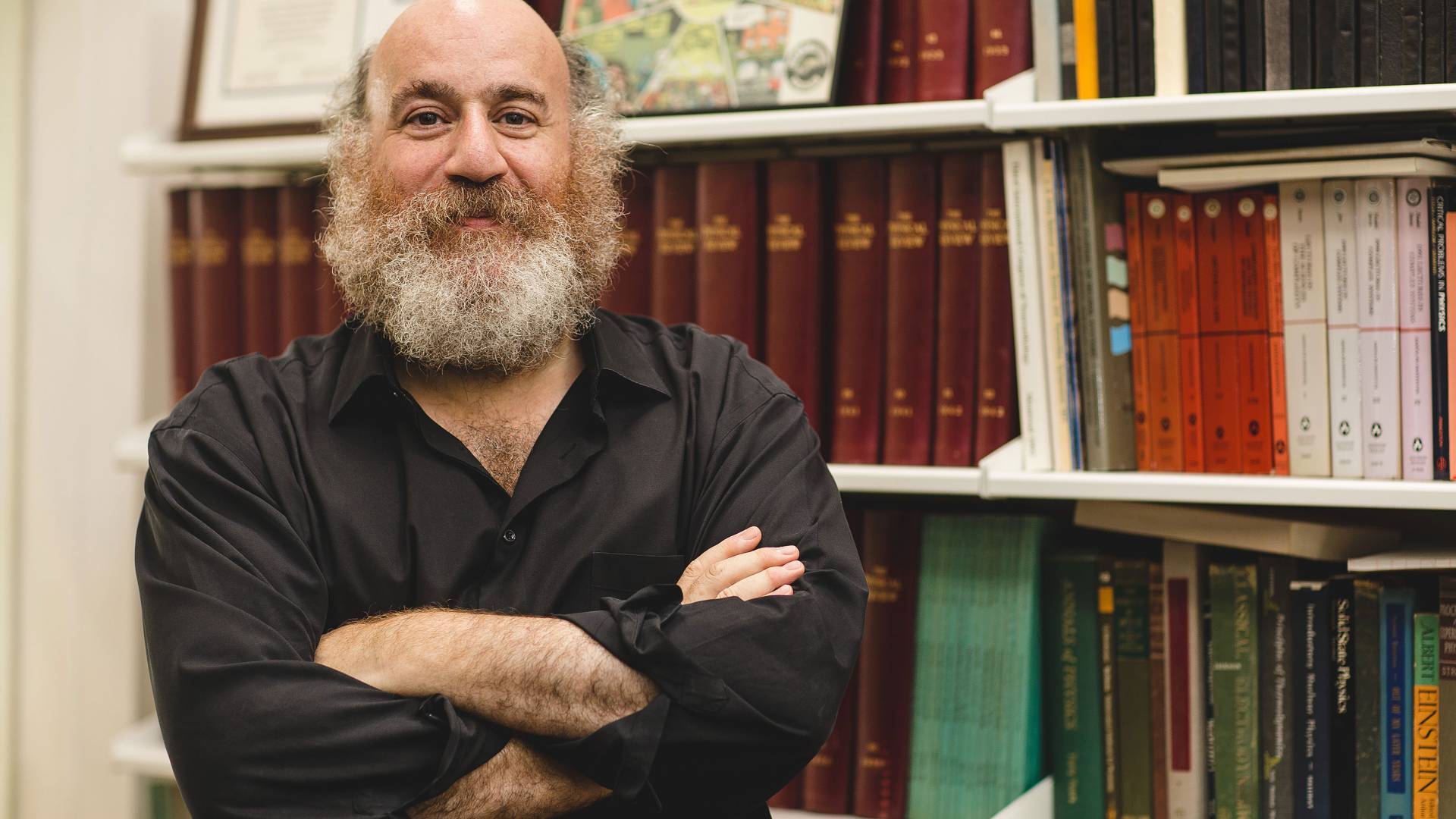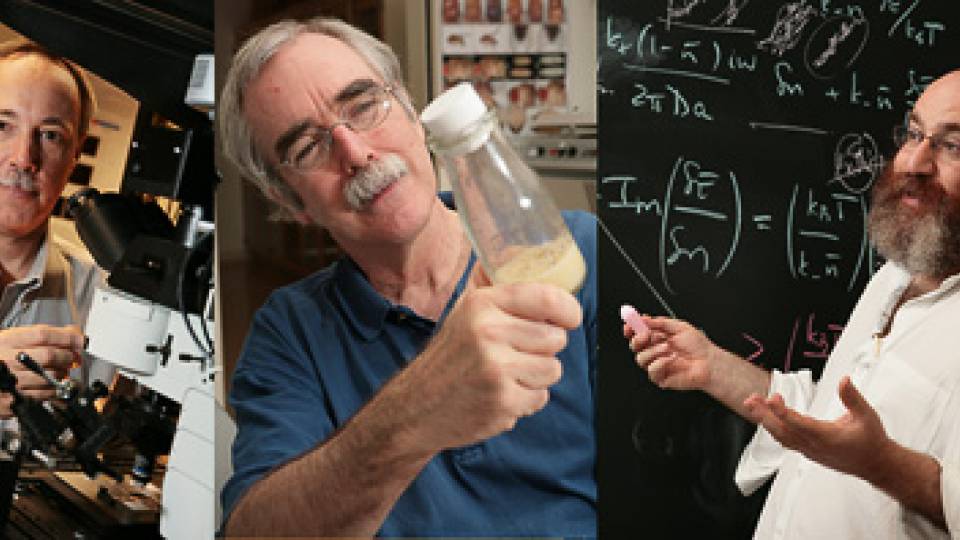William Bialek has been awarded the 2018 Max Delbrück Prize in Biological Physics for his application of physics principles to biological systems.
William Bialek, the John Archibald Wheeler/Battelle Professor in Physics and the Lewis-Sigler Institute for Integrative Genomics, has been awarded the 2018 Max Delbrück Prize in Biological Physics from the American Physical Society (APS) "for the application of general theoretical principles of physics and information theory to help understand and predict how biological systems function across a variety of scales, from molecules and cells, to brains and animal collectives."
Bialek, who is also a Visiting Presidential Professor of Physics at The Graduate Center of the City University of New York and the co-director of the newly established Center for the Physics of Biological Function, is best known for work demonstrating that some living systems come very close to the limits of what is allowed by the laws of physics. More generally, he is interested in finding theoretical principles that have the power and generality that characterize physics equations, yet encompass the complexity and diversity of life.
“The phenomena of life have largely evaded the physicists’ systemization. So we know a lot about the parts, but we don’t yet have the kinds of quantitative, predictive power that we do in the rest of physics,” Bialek said.
“Physicists have a different set of questions about how biological systems work, and how to characterize them,” he said. “When we ask questions about how information is processed or represented in an embryo, or the brain, or the immune system — are there rules about how information is represented by physical variables that matter to how the system is organized? Or is there a different story for every biological system?”
The $10,000 Max Delbrück Prize, presented annually by the APS, recognizes and encourages outstanding achievement in biological physics research. Previous recipients include Princeton faculty members Robert Austin, a professor of physics, and John Hopfield, the Howard A. Prior Professor in Life Sciences, Emeritus, and an emeritus professor of molecular biology.







